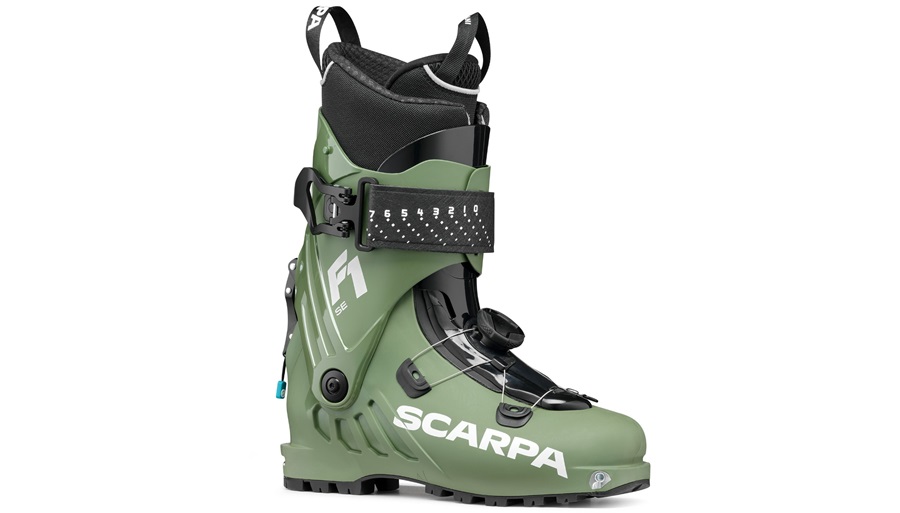
How Desmopan® CQ MBC is enabling more eco-friendly ski gear
Ski boot manufacturer SCARPA is committed to both innovation and sustainability. Driven by these values – and the growing demand for more eco-friendly ski gear – they began developing a new ski boot model, SCARPA F1 SE.
With this model, SCARPA aimed to transition away from fully fossil-based ski boot materials. The new ski boot design would need to incorporate more sustainable ski boot components without affecting the boot’s final characteristics.
The challenge was finding the ski boot materials that would achieve this balance. Specifically, ski boots must be durable enough to withstand extreme conditions, and flexible enough to provide reliable support and safety for the wearer. The ski boot materials for SCARPA’s new model would need to meet these requirements while also offering a lower carbon footprint.
It was great to work with SCARPA – a leading name in the ski boot industry. Our more sustainable TPU range, Desmopan® CQ MBC, again demonstrated its ability to deliver both a reduced environmental impact and high performance. Another important milestone on our journey to becoming fully circular!

SCARPA found a solution in the heat-moldable Desmopan® CQ MBC range from Covestro, made from thermoplastic polyurethanes (TPU). Desmopan® CQ MBC was selected for its combination of improved sustainability and high performance.
Specifically, Desmopan® CQ MBC products contain up to 35% sustainable share, attributed via a mass-balance approach. As partly bio-circular solutions, these products combine fossil-based content with renewable, waste-based, or recycled materials. Thanks to this, Desmopan® CQ MBC’s carbon footprint is up to 30% lower than fully fossil-based equivalents.
At the same time, Desmopan® CQ MBC delivers a consistently high level of performance, comparable to conventional materials. It offers excellent hydrolysis resistance, cold flexibility, and impact resistance: all critical properties for durable, safe, high-performance ski boot components.
By incorporating Desmopan® CQ MBC into the SCARPA F1 SE, SCARPA has been able to seamlessly transition to more sustainable materials, while maintaining the high performance its consumers expect. Not only does this help SCARPA reduce its own environmental impact, but it also helps the company appeal to environmentally conscious consumers.
In short, Covestro and SCARPA’s collaboration demonstrates how the right raw materials can bring improved sustainability and high performance together – even in a demanding application like ski boots. In this way, the partnership has paved the way for greater sustainability in sports and leisure.
It was great to work with Covestro on the SCARPA F1 SE. This ski boot offers not just high performance and a lower environmental impact, but also design and functionality. Desmopan® CQ MBC will help us lead the way in integrating more sustainable materials into more eco-friendly ski gear!
Key benefits
- Partly bio-circular: Up to 35% bio-based content using mass balancing
- More sustainable: Environmental impact up to 30% lower than fully fossil-based equivalents
- High-performance: Offers excellent hydrolysis resistance, cold flexibility, and impact resistance.
- Customer appeal: Enables appealing design and functionality in the SCARPA F1 SE ski boot










